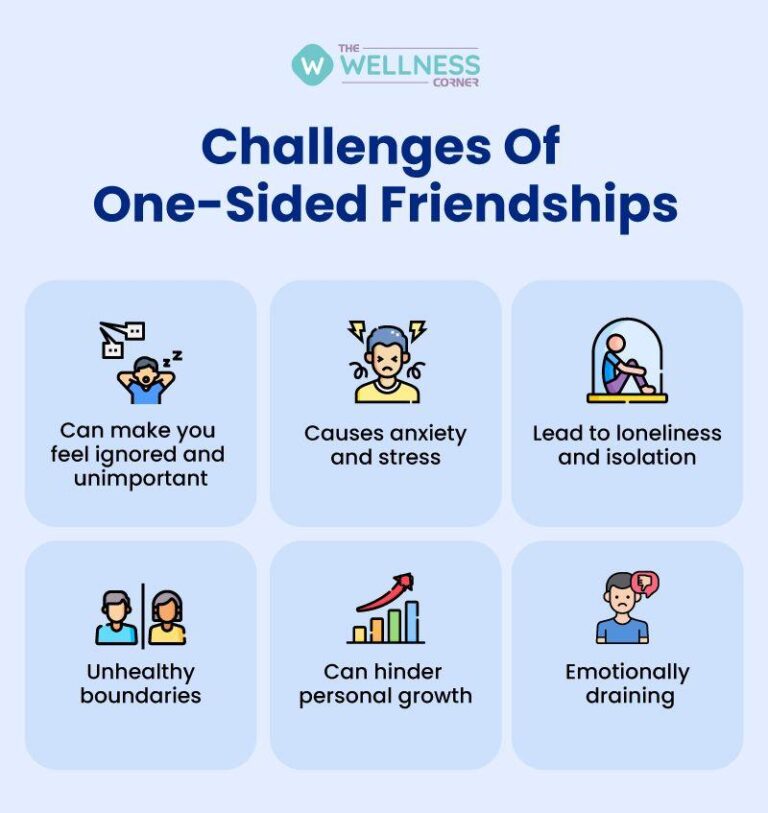Friendships are meant to be a two-way street—full of give and take, support and understanding. But sometimes, without even realizing it, we find ourselves investing more time and energy into a friendship than the other person does. If you’ve ever finished a conversation feeling unappreciated or realized you’re always the one reaching out, you might be stuck in a one-sided friendship. It’s a frustrating place to be, but recognizing the signs is the first step toward finding more balanced and fulfilling connections. In this article, we’re diving into 10 clear signs that you’re in a one-sided friendship—and what you can do about it. Let’s get into it!
Table of Contents
- Signs Your Efforts Are Constantly Overlooked
- How to Recognize When Communication Feels One-Way
- Why Your Feelings and Needs Might Be Ignored
- Practical Steps to Rebalance or Move On from a One-Sided Friendship
- In Conclusion
Signs Your Efforts Are Constantly Overlooked
When you constantly find yourself the one initiating plans, sending messages, or offering support without much reciprocation, it’s a clear signal that your efforts might be falling on deaf ears. You might share exciting news or reach out in times of need, only to be met with delayed responses or minimal enthusiasm. This imbalance can leave you feeling invisible and undervalued, like you’re investing in a friendship that others aren’t equally committed to nurturing.
Keep an eye out for these subtle warning signs:
- They rarely ask how you’re doing or show genuine interest in your life.
- Your thoughtful gestures and favors go unnoticed or unacknowledged.
- You often feel drained after spending time together because the connection feels one-sided.
- Conversations are mostly about their issues, leaving your thoughts and feelings sidelined.
How to Recognize When Communication Feels One-Way
When you find yourself constantly initiating conversations, sending messages, or making plans that are met with delayed or minimal responses, it’s a strong indicator that communication is skewed. The energy invested in keeping the connection alive feels imbalanced, and despite your efforts, the flow of interaction rarely feels reciprocal. Often, you’ll notice that your messages are answered with one-word replies or vague acknowledgments, leaving you wondering if your friend is truly engaged or simply going through the motions.
Another subtle sign is the absence of curiosity about your life or feelings. If your updates and achievements are met with indifference or quickly glossed over, it highlights a lack of genuine interest. You might also catch yourself hesitating to share personal thoughts, fearing they’ll fall on deaf ears. This dynamic creates a sense of isolation within the friendship, where communication feels more like a monologue than a shared exchange.
- The conversation rarely feels balanced or engaging.
- You often end up carrying the emotional weight alone.
- Efforts to connect seem to go unnoticed or unappreciated.
Why Your Feelings and Needs Might Be Ignored
When your feelings and needs consistently fall on deaf ears, it’s often because the other person prioritizes their own agenda over mutual respect and understanding. In a one-sided friendship, communication tends to be less about genuine connection and more about convenience or obligation. Your thoughts might be dismissed or brushed aside because they don’t align with what the other person wants to hear. This imbalance can leave you feeling invisible, as if your emotions hold little weight or importance in the dynamic.
Sometimes, the reason behind this neglect isn’t outright selfishness but a lack of emotional awareness or empathy. The friend may be caught up in their own struggles or worldview, unable to recognize the impact of their behavior on you. Alternatively, it might be a subtle power play, where your needs are minimized to maintain control. You deserve a friendship where your voice is heard and your feelings validated, not one where your experiences are overlooked or invalidated.
- You voice your concerns, but they’re quickly forgotten or dismissed.
- Your emotional well-being seems secondary to their convenience.
- There’s little to no effort to understand your perspective.
Practical Steps to Rebalance or Move On from a One-Sided Friendship
When you recognize the signs of an imbalanced friendship, taking action is crucial for your emotional well-being. Start by setting healthy boundaries that make it clear what you are willing to invest emotionally and physically. This might mean reducing how often you reach out or gently calling out when you feel overlooked. Open, honest conversations can actually recalibrate the dynamic—express your feelings without blame, focusing on how certain behaviors affect you rather than accusing or assuming their intentions.
If your efforts to rebalance the relationship aren’t reciprocated, it’s okay to step back entirely. You deserve friendships that nourish you, not ones that leave you drained. Consider gradually creating space—engage more with others who appreciate and support you. Remember, moving on from a one-sided friendship isn’t about animosity; it’s about making room for genuine connections that add value to your life. Trust your instincts and prioritize your happiness.
- Express your needs clearly: Calmly share what you expect and how you feel.
- Limit your availability: Create time for yourself and other relationships.
- Focus outward: Reinvest energy in friends who show mutual care.
- Practice self-compassion: Be kind and patient with yourself throughout this process.
In Conclusion
Navigating friendships can be tricky, especially when the effort feels one-sided. Recognizing these signs is the first step toward nurturing healthier, more balanced connections—or knowing when it’s time to let go. Remember, friendships should be a two-way street filled with mutual respect and care. So, if you’re noticing these red flags, don’t be afraid to prioritize your own well-being and surround yourself with people who truly value you. After all, you deserve friendships that lift you up, not weigh you down!

